Thanks to historic preservation, adaptive reuse and the ever-growing presence of antiques shops, Columbia is attracting the attention of tourists and entrepreneurs alike.
Daisy and Tony Pagan have combined all three phenomena by restoring a 150-year-old building on Locust Street, adapting it to serve as an events venue and their residence and decorating it with finds they discovered during the renovation process.
Women are regarded as consummate multitaskers, but Daisy takes it to another level. She not only plans and hosts what she calls “celebrating joy” events that are held in the first-floor venue she named Perfect Settings, but she is the manager of Murphy’s Mercantile & Co., which is part of Hinkle’s Restaurant and is modeled on the concept of general stores of yesteryear, as it offers everything from candy, greeting cards and gifts to seasonal items, home accessories and more. She also oversees the food-oriented stand Murphy’s Mercantile operates at the Columbia Market House and is the vice president of the Columbia Merchants Association. She is also a grandmother.
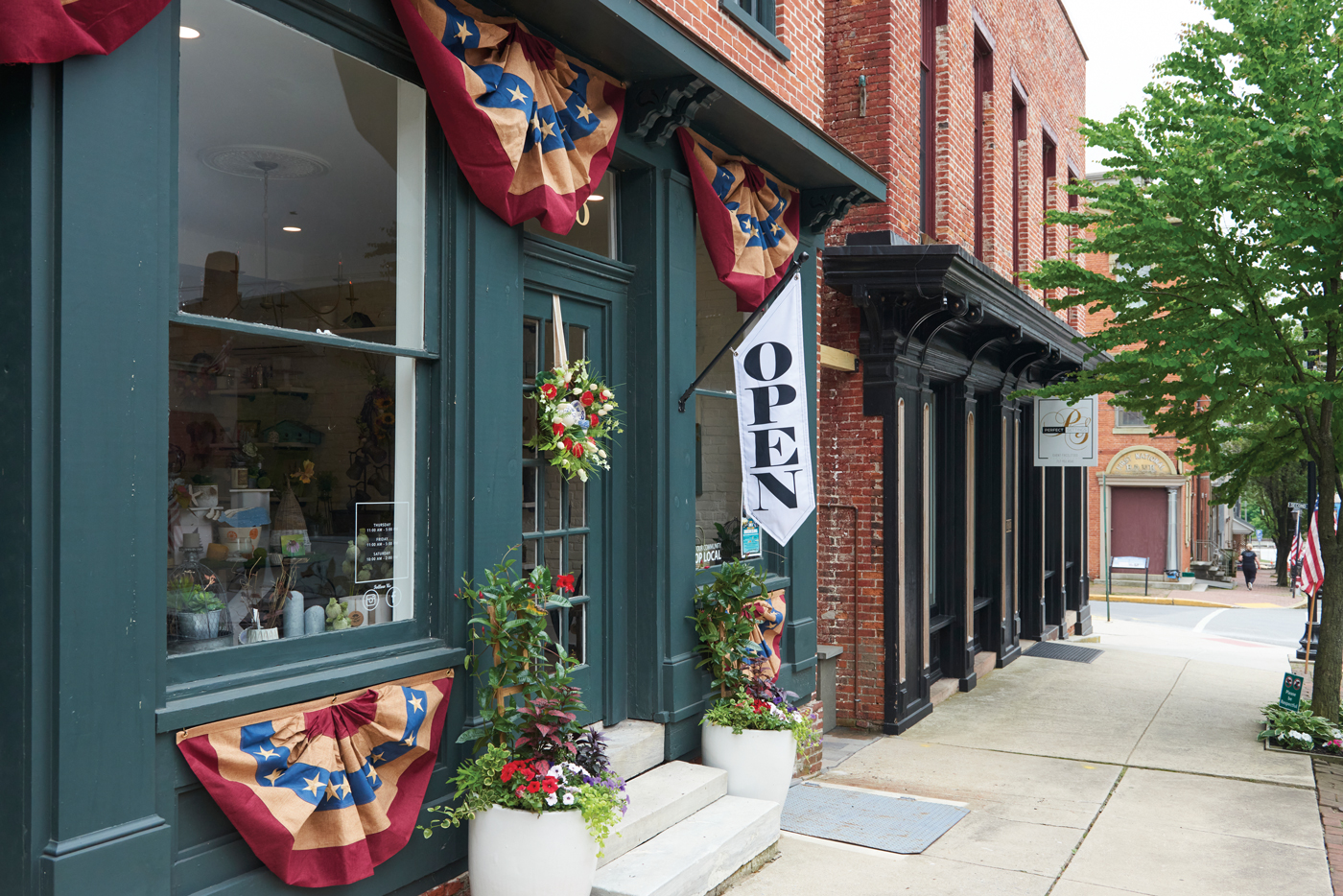
The first floor of the building the Pagans are renovating is dedicated to retail (Thistle & Sage Creative). The red/white/blue bunting and decorations were in place for a decorating contest downtown businesses took part in for Memorial Day.
According to Daisy, Tony is not one to let the grass grow under his feet either. “That man works eight days a week,” she says. When he’s not fulfilling his duties as a sales rep for Ecolab, Tony helps Daisy with the set-up and tear-down of events held at Perfect Settings. He utilized his carpentry skills to restore the building, creating a first-floor venue, a second-floor residence and a rooftop terrace that offers a view of the Susquehanna River. “He did 80% of the work himself,” Daisy reports. The two aren’t finished. Last year they purchased an adjacent building, for which they have plans.
What attracted the Lancaster-born Pagans to Columbia? Frustration and economics played key roles. Daisy has been an event planner for as long as she can remember and in working with brides and party hostesses, she became frustrated by the lack of mid-sized venues that were available in Lancaster during the early 2000s. The available venues were either too big or too small to accommodate her clients’ guest lists.
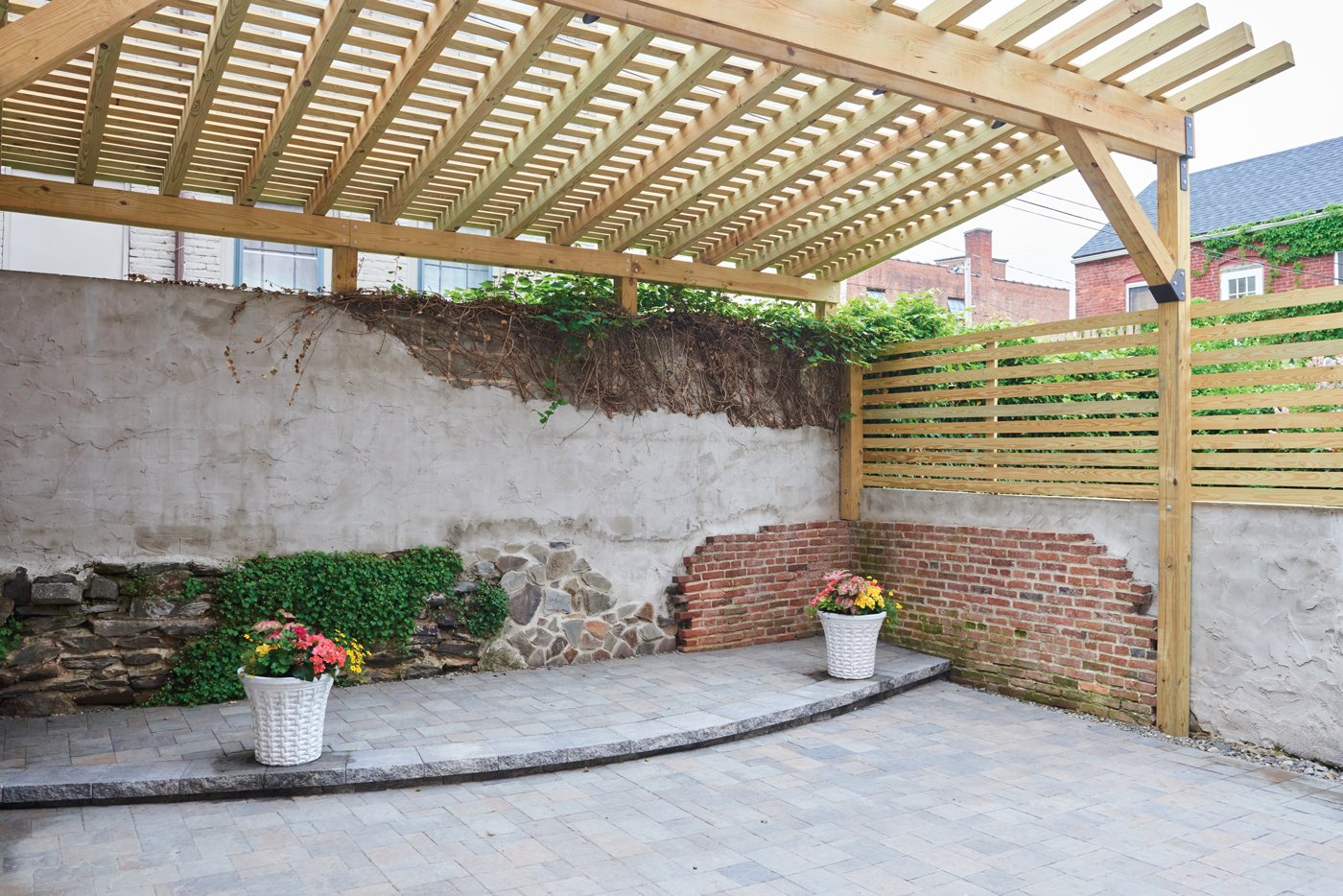
The Pagans acquired the property next door in order to gain access to a courtyard they are in the process of updating and landscaping. It will be used for wedding ceremonies and pre-reception cocktails.
One day, she shared her frustrations with her boss. “I was the personal assistant to Richard Good,” she says of the former owner of Good’s Furniture & Carpet. “I was working with a bride from Philadelphia and I shared with him that we were having a difficult time scheduling visits to venues. I said, ‘I should just open my own.’ He encouraged me to go for it and told me, ‘You’ll always have regrets if you don’t.’” While Daisy never considered herself to be an entrepreneur, she credits Mr. Good for giving her the courage to dream. Fortunately, Tony had her back, as well. The search was on for a suitable building.
One day, while visiting her sister in Columbia, Daisy became aware of a building on Locust Street that was sitting empty. Even though it wasn’t for sale, it piqued Daisy’s interest. A neighbor had access to it and offered to give Daisy and Tony a tour. Built in 1850, it had become a time capsule of Columbia’s history, as it originally served as the home of the town’s Independent Order of Odd Fellows. Daisy understands the first floor of the building was home to the post office, while the second floor held a ballroom. Offices and meeting spaces filled the third and fourth floors. In the aftermath of the Battle of Gettysburg in July 1863, the building served as a hospital. It also was the site of a speakeasy, a machine shop, a shoe factory and most recently, a sewing factory.
The building was anything but empty – remnants of the sewing factory greeted the Pagans when they walked in. Rows of sewing machines filled the first floor, while scraps of cloth and other materials filled the cellar. Creepy was their first impression. “The place was such a mess that Tony turned around and left,” Daisy recalls. “I think I ran out,” Tony says. Despite her husband’s reaction, Daisy was intrigued and toured the entire building.
The two then began scouting properties in Lancaster. “The price difference for square footage was huge,” Daisy notes. Tony had second thoughts about the building in Columbia and suggested that they take another look at it. This time, he deemed it had possibilities. They negotiated a price with the building’s owner, took a deep breath and hoped they had made the right decision.
Daisy’s enthusiasm waned, however, when Richard Good shared that he had driven to Columbia to check out the property and questioned if she and Tony had made a mistake. “Are you sure you know what you’re doing?” Daisy remembers him asking. He couldn’t help but notice boarded-up storefronts and blighted properties as he drove through town. She had to agree with his assessment but countered that she had a feeling Columbia was on the path to revitalization. “I hope you’re right and I’m wrong,” he told her.
Tony spent the next year creating a home for them on the second floor. (A fire had destroyed the third and fourth floors.) The following year was spent creating the events venue.
Perfect Settings, which opened in 2007, provided the dazzle that Locust Street needed. Open houses and coverage via The Knot helped to put the 100-seat venue on the map. “We are totally booked for 2022,” Daisy reports, noting that it represents a complete turnaround from 2020, when the pandemic closed venues such as Perfect Settings. “It was really painful,” Daisy says, noting that she and Tony chose “to do the right thing” and refunded the down-payments couples and hostesses had made. Thinking 2021 would represent a return to normalcy was met with more pandemic-related challenges. “It feels good to be back,” she says of an event-filled 2022 and beyond.
When Hinkle’s announced it would be closing in 2017 – after 124 years – townspeople were in shock at the prospect of losing such a landmark. Entrepreneurs Don and Becky Murphy stepped in and announced they would be purchasing the property. After making extensive renovations, the couple reopened the restaurant and ultimately leased it to Don Murphy, John Sipe, Tom Davis and Robin Ortman, who have 70 years of combined management and restaurant experience, some of it via Hinkle’s.
The Murphys also revamped the gift shop and invited Daisy to manage it. Since then, Daisy has had the opportunity to collaborate on other economic development projects the Murphys are undertaking. She is excited that the Murphys’ investment company, Cimarron Investments, will be developing a property that sits catty-corner across the intersection of Locust and South Second streets from her and Tony’s properties. Announced in 2018 but delayed by the pandemic, the Chip Factory Hotel will employ adaptive reuse to transform a former potato chip factory that closed in 1940 into a premier Ascend Hotel Collection property that will feature approximately 79 guest rooms, as well as meeting spaces, a restaurant and bar and a rooftop lounge.
As for the Pagans, they purchased the building that is adjacent to theirs in order to expand Perfect Settings’ offerings to include a courtyard that can be used for wedding ceremonies and cocktail hour. At one time, both buildings had access to the courtyard but at one point the entryway from 200 Locust was bricked over, which Tony plans to remedy. “In order to gain the courtyard, we had to buy the entire building,” Daisy notes. “Tony really wanted that courtyard! So, we’re back to square one,” she says of rehabbing a building.
Over the past year they created retail space on the first floor; it is now home to Thistle & Sage Creative, which specializes in custom floral arrangements and wreaths, home and garden décor, original fine art and a line of sunscreen products from Beautycounter. The second and third floors will be dedicated to a spacious (2,500 square feet) apartment. Tony is excited to put the finishing touches on the courtyard that was designed and built by Tom Jones Landscape & Lawn Care of Marietta.
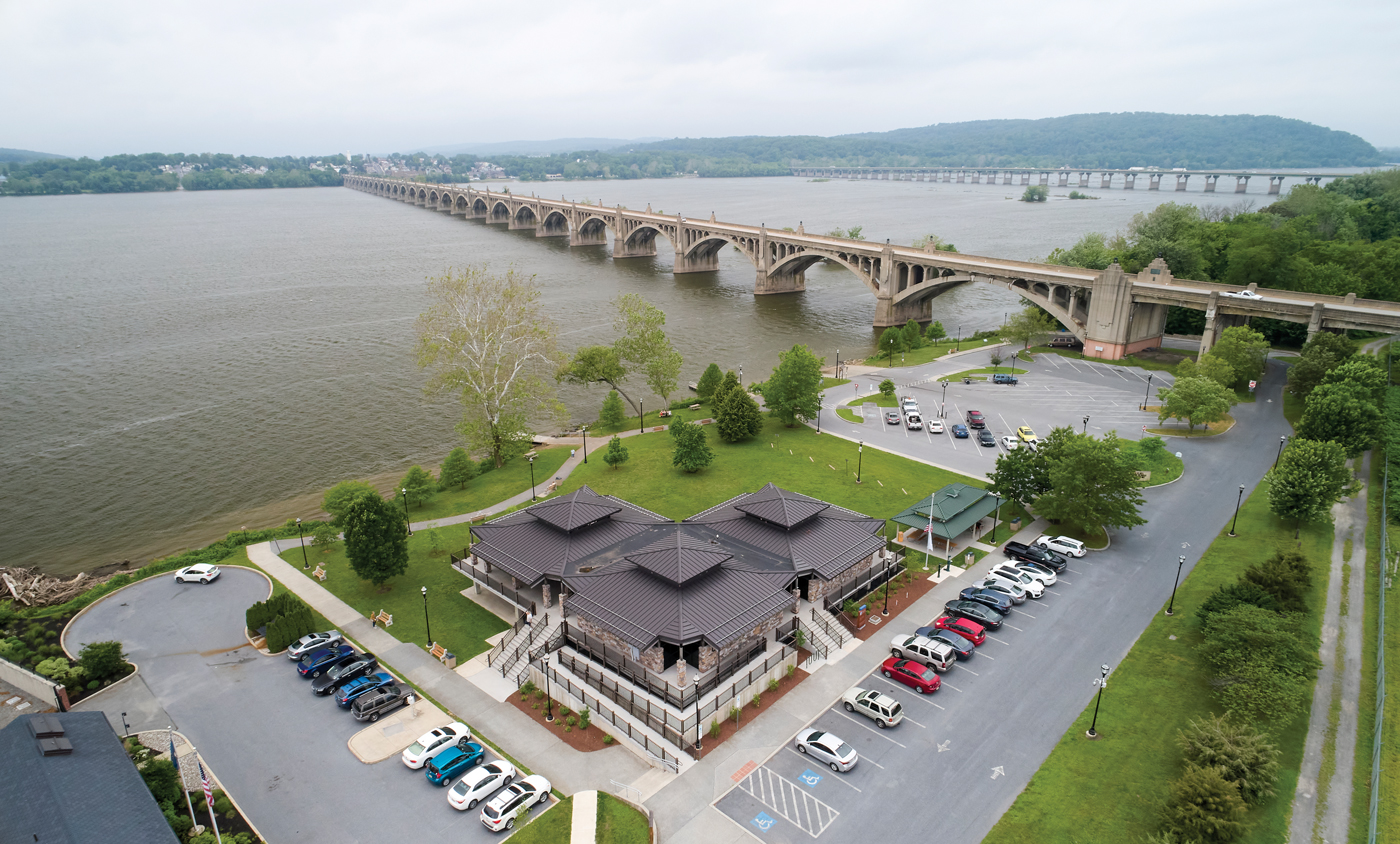
The Columbia Crossing River Trails Center welcomes visitors to exhibits and private events. It also serves as a trailhead for river and hiking trails. The state is in the preliminary stages of carrying out rehabilitative work on Veterans Memorial Bridge, which was completed and opened in 1930. One idea on the drawing board is to install lights under the bridge in hopes of enticing mayflies away from the fixtures that illuminate the roadway on the bridge.
Daisy is also proud to offer couples another amenity – the Susquehanna River as a backdrop for wedding photos. The refurbished Columbia River Park provides a perfect setting as it offers backdrops that include the river and Veterans Memorial Bridge. “It’s perfect for people who are on a tight timeline,” she says of the river’s close proximity to her venue.
Daisy is proud to live and work in Columbia for another reason: the collaborative spirit that exists among organizations such as the Columbia Merchants Association, Susquehanna National Heritage Area, Create Columbia, the Columbia Economic Development District and Columbia Historic Preservation Society, as well as nonprofit groups and government. Businesses and entrepreneurs are taking notice. “The Welcome Wagon committee [an arm of the Columbia Merchants Association] has probably been averaging three ribbon cuttings a month,” she says of recent economic activity in the town. The annual holiday event, An Old-fashioned Christmas, which coincides with Small Business Saturday (following Thanksgiving), will be celebrating its fifth year. “Our goal and motto is to get feet in the streets,” she notes.
Despite progress, Columbians continue to take pride in the fact that the town marches to the beat of its own drum. It’s no secret that Columbia has been perceived as Lancaster County’s “wild west” town since its earliest days. To a degree, Columbia embraces that perception. A person noted on the Columbia Spy’s Facebook page that Columbia is “cool” in a “bad-ass” sort of way.
Through her various endeavors, Daisy recognizes the positive changes that have impacted Columbia. “It’s become a destination,” she says. “I’m amazed when I look at the guest book [at Murphy’s Mercantile]. People visit Columbia from all over the world!” Now, with more businesses opening and the changes that are on the horizon, visitors will be able to hike or bike the river trails, shop, go antiquing, dine, visit museums and historic sites and stay overnight in Columbia. “It’s an exciting time to be a part of Columbia,” Daisy says.
For more information, visit perfectsettings.net.
For information about happenings in Columbia, visit columbiamerchants.com and createcolumbia.org.
Go Antiquing!
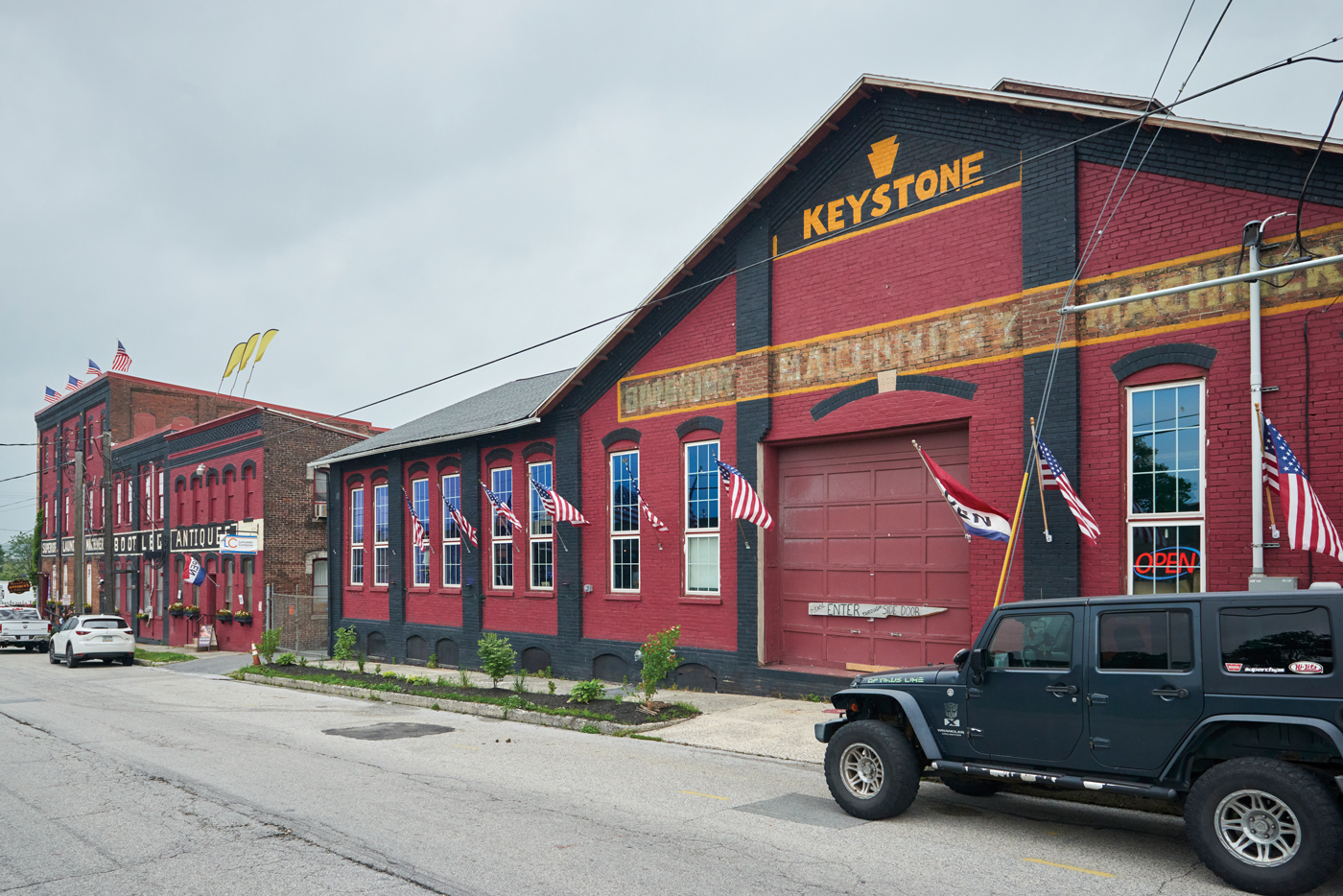
Antiquing has become a major draw in Columbia, with many businesses taking over abandoned or underused warehouse spaces.
Antiques are hot! The younger generation is discovering the allure of antique and vintage décor and furniture. Because of pandemic-related supply-chain issues, consumers are opting to shop for furnishings in antiques, consignment and second-hand shops. Columbia has become a thriving center for antiques, vintage, collectibles and the creative arts. If you’re not in the shopping mood, there are several museums in town that pay homage to the passage
of time.
Burning Bridge Antiques
Don and Becky Murphy recently bought this popular destination that was formerly the home of a hardware store. Since 2005, the three-story building (circa 1800s) has been a showcase for antiques and collectibles that are made available through 200+ vendors and consigners.
304 Walnut St. • Burningbridgeantiques.com
Bootleg Antiques & Oddities
Located in a building that dates to 1822, Bootleg is home to 70+ vendors and features an in-store café that is open weekends.
135 Bridge St. • Bootlegantiques.net
Rivertowne Antiques Center
Housed in a former tobacco warehouse that’s listed on the National Registry of Historic Places, Rivertowne features two floors of furniture, primitive and Americana décor, folk art and much more.
125 Bank Ave. • Rivertowneantiques.com
Railroad Avenue Antiques and Toy Trains
Train enthusiasts will appreciate the quality railroad memorabilia and toy trains – from Lionel, American Flyer and more – that define this shop.
304 Walnut St.
Facebook.com/Railroad-Ave-Antiques-and-Toy-Trains-1861881837360892
Tollbooth Antique Marketplace
Open since 2010, this former garment factory is now comprised of boutique-sized booths that specialize in antiques and collectibles.
215 Chestnut St. • Tollboothantiques.smugmug.com
Keystone Artisan Werks
Originally a repair shop for the railroad, the building is now home to 50+ artists, crafters and makers. Keystone also hosts special tasting events that showcase local breweries and vintners.
199 Bridge St. • Keystoneartisanwerks.com
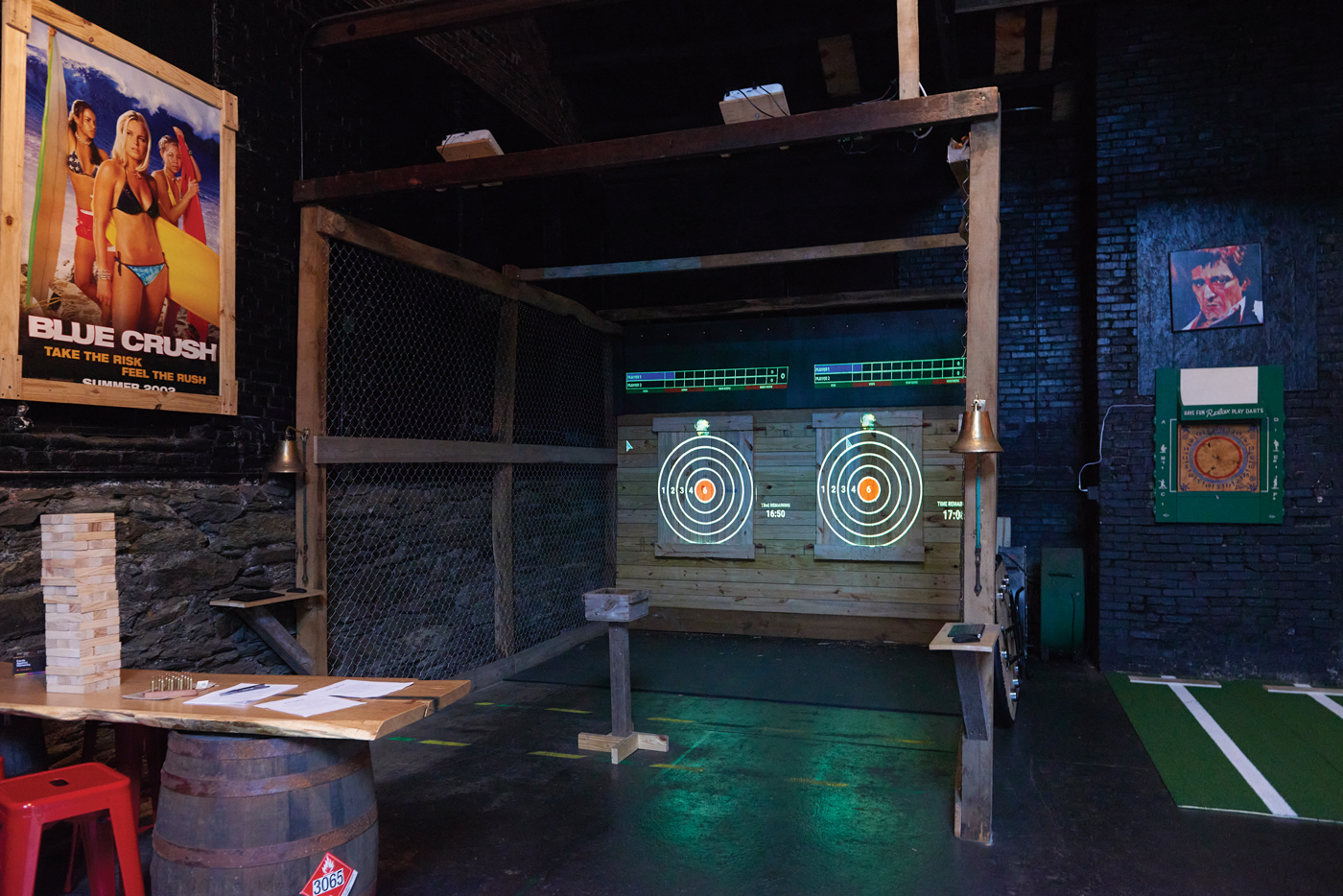
Keystone Artisan Werks is cool! Owned by Shawn and Katie Yohe, it opened last July. “It’s the only place in town with a boat in it!” says Shawn of the oddities, finds, antiques, collectibles and maker creations that fill it. The Yohes also host tastings with regional brewers and vintners on weekends. Lastly, there’s a “man cave” that is uniquely decorated and offers a big-screen TV, table games and digital ax-throwing and is available to rent for private events. Shawn, who is a licensed auctioneer, calls the project “a labor of love.”
Fragments of the Past
According to one reviewer, this relatively new shop offers “everything you grew up with” but haven’t seen in ages. The selection ranges from stained glass to action figures. Enjoy complimentary coffee in the courtyard.
313 Walnut St.
Facebook.com/fragmentsofthepast717
National Watch & Clock Museum
The history of timekeeping is the focus of this museum that boasts more than 13,000 clocks and watches – the largest and most comprehensive horological collection in
North America.
514 Poplar St. • Nawcc.org
Wright’s Ferry Mansion
Built in 1738, it was the home of Susanna Wright, whose sophisticated tastes and wide variety of interests are reflected in the furnishings and accessories that were curated by the Von Hess Foundation following the restoration of the house. The ceramics, glass, metals, textiles and PA-made furniture reflect the 1700-1750 time period and comprise what is considered to be the most complete collection of its kind.
Second and Cherry streets
Facebook.com/pages/Wrights-Ferry-Mansion/371989566166143
Turkey Hill Experience
Introduce the kids to the concept of adaptive reuse and some tasty Lancaster County history at this fun and interactive “museum” that makes its home in a once-deteriorating silk mill. Beautifully restored and adapted to its new role, the building is now used to tell the story of the iconic dairy that is located a few miles away and overlooks the Susquehanna from atop Turkey Hill.
301 Linden St. • Turkeyhillexperience.com


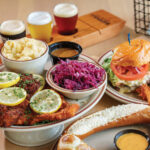


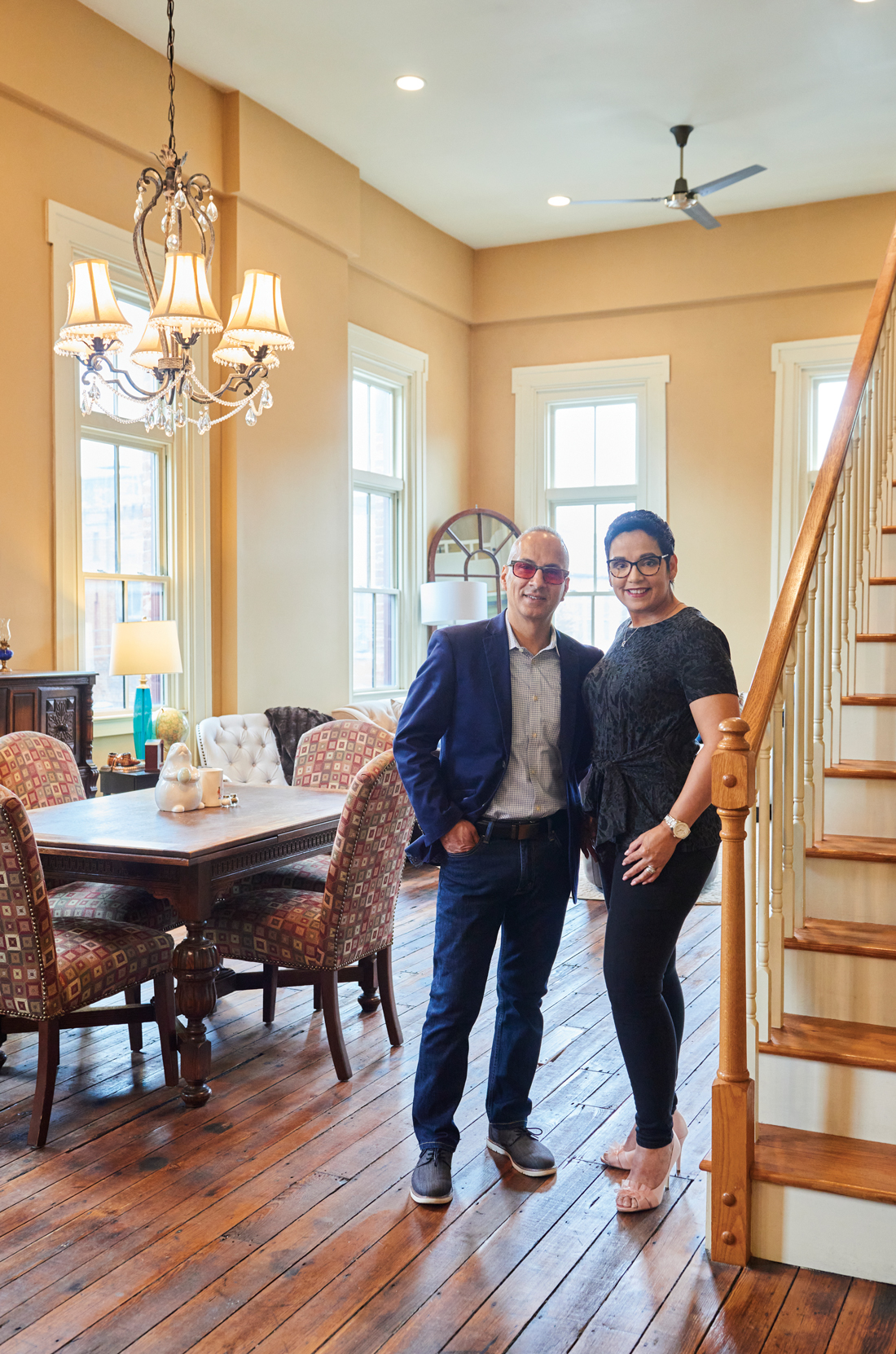
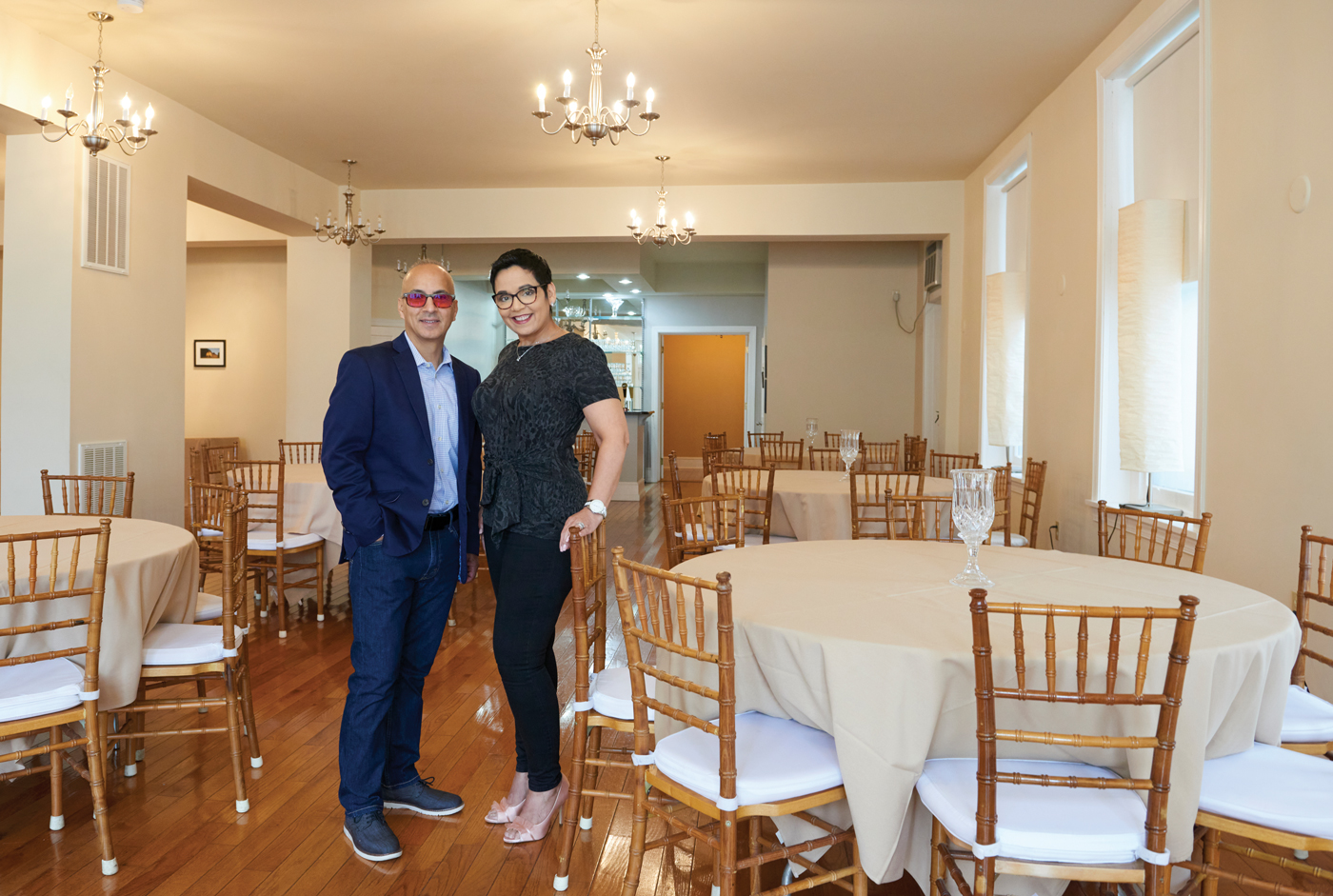
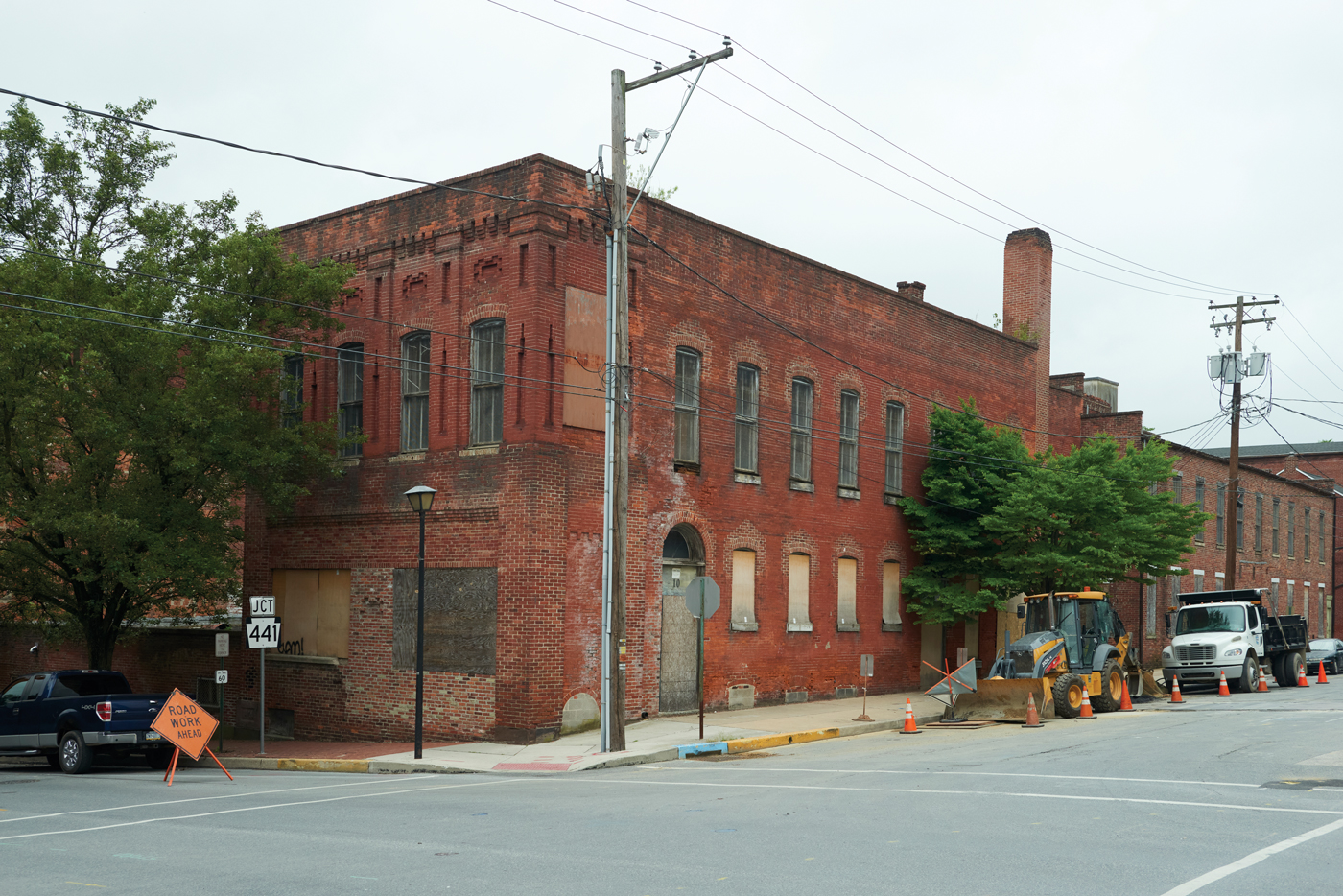
SHARE
PRINT